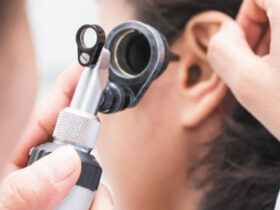– By Mark Albrecht, PTA –
 Your rotator cuff is made up of the muscles and tendons in your shoulder. These muscles and tendons connect your upper arm bone with your shoulder blade. They also help hold the ball of your upper arm bone firmly in your shoulder socket. The combination results in the greatest range of motion of any joint in your body.
Your rotator cuff is made up of the muscles and tendons in your shoulder. These muscles and tendons connect your upper arm bone with your shoulder blade. They also help hold the ball of your upper arm bone firmly in your shoulder socket. The combination results in the greatest range of motion of any joint in your body.
A rotator cuff injury includes any type of irritation or damage to the rotator cuff muscles or tendons. Rotator cuff injuries are not limited to professional athletes, anyone can be sidelined by pain in the shoulder involving the rotator cuff muscles. Causes of a rotator cuff injury may include falling, lifting and repetitive arm activities.
Rotator cuff injury signs and symptoms may include:
- Pain and tenderness in your shoulder, especially when reaching overhead, reaching behind your back, lifting, pulling or sleeping on the affected side
- Shoulder weakness
- Loss of shoulder range of motion
- Inclination to keep your shoulder inactive
The most common symptom is pain. You may experience it when you reach up to comb your hair, bend your arm back to put on a jacket or carry something heavy. Lying on the affected shoulder also can be painful. If you have a severe injury, such as a large tear, you may experience continuous pain and muscle weakness.
Common causes of rotator cuff injuries include:
- Normal wear and tear. Increasingly after age 40, normal wear and tear on your rotator cuff can cause a breakdown of fibrous protein (collagen) in the cuff’s tendons and muscles. This makes them more prone to degeneration and injury. With age, you may also develop calcium deposits within the cuff or arthritic bone spurs that can pinch or irritate your rotator cuff.
- Poor posture. When you slouch your neck and shoulders forward, the space where the rotator cuff muscles reside can become smaller. This can allow a muscle or tendon to become pinched under your shoulder bones (including your collarbone), especially during overhead activities, such as throwing.
- Falling. Using your arm to break a fall or falling on your arm can bruise or tear a rotator cuff tendon or muscle.
- Lifting or pulling. Lifting an object that’s too heavy or doing so improperly — especially overhead — can strain or tear your tendons or muscles. Likewise, pulling something, such as a high-poundage archery bow, may cause an injury.
- Repetitive stress. Repetitive overhead movement of your arms can stress your rotator cuff muscles and tendons, causing inflammation and eventually tearing. This occurs often in athletes, especially baseball pitchers, swimmers and tennis players. It’s also common among people in the building trades, such as painters and carpenters.
Most of the time, rotator cuff injuries can be treated conservatively with exercise therapy. A physical therapist can talk with you about specific exercises designed to help heal your injury, improve the flexibility of your rotator cuff and shoulder muscles, and provide balanced shoulder muscle strength. Depending on the severity of your injury, physical therapy may take from several weeks to several months to reach maximum effectiveness.
If you’ve had a rotator cuff injury in the past, daily shoulder stretches and a shoulder-strengthening program can help prevent a recurrence. Especially important is a program of strength exercises to promote balanced strength about the shoulder. Most people exercise the front muscles of the chest, shoulder and upper arm, but it is equally important to strengthen the muscles in the back of the shoulder
and around the shoulder blade. If you are at risk of rotator cuff injuries — such as from having a job or hobby that requires repetitive shoulder motions — daily exercises can help prevent an injury.
Speak to a physical therapist if you have any questions about what you can do for shoulder pain, they are the musculo-skeletal specialists that work with these problems every day and can offer effective conservative treatment to eliminate pain to get you back in the game.
Progressive Health and Racquet Club
941-423-5668
www.progressivehealthplex.com








